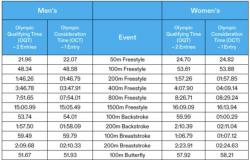Listen to the audio version of the article
Election “by universal and direct suffrage” of the prime minister, who remains in power for five years thanks to an electoral system that “guarantees” the majority of seats in Parliament and who cannot be re-elected after two consecutive terms. And, above all, that he can only be replaced once in the legislature, and only if he himself decides to pass the buck, by a parliamentarian who is part of the coalition that won the elections. Translated: no more technical governments and broad agreements led by personalities not elected by the citizens (read Mario Monti in 2011 and Mario Draghi in 2021). A retouching of the Mininal Constitution, given that “only” articles 92 and 94 of the Constitution are completely rewritten, but the effect is that of a true Copernican revolution in our institutional system.
Green light without opposition to article 5 of the Casellati bill, the heart of the reform
With the approval of article 5 of the Casellati bill, which introduces the direct election of the prime minister and the principle of the majority bonus, the Senate approved in the last few hours – with the absence of the opposition senators who left from the Chamber in protest – the heart of the “mother of all reforms”. The green light from Palazzo Madama is scheduled for June 18, after which the text will pass to the Chamber. Like all constitutional reforms, after the first double green light, a second yes from both Chambers is required following a pause of at least three months. But given that the text can no longer be amended at second reading, this first step is fundamental to understand which reform Italians will have to express their opinion on in the probable confirmatory referendum.
The result of the European elections crystallized the Meloni-Schlein conflict
Because if there is one indication that has emerged from the European polls it is that of the closing, at least for the moment, of the door to a possible bipartisan dialogue although hoped for by many (from Fratelli d’Italia senator Marcello Pera to the so-called bipartisan constitutionalists of LibertàEguale and Magna Carta). The strengthening of Giorgia Meloni on the one hand and the success of the Democratic Party led by Elly Schlein have crystallized the wall against wall. The dem secretary clarified that as long as there is a direct election of the prime minister, “which upsets the institutional balance and empties the powers of the President of the Republic”, the Democratic Party is not available for dialogue.
Direct election of the prime minister but with which voting system?
Yet the critical contribution of the opposition, perhaps with a view to reducing harm, would be desirable to improve the reform. Direct election aside, the major critical issue is that it is not clear by which system the prime minister will be elected. The Constitution only establishes the principle of “a prize to be assigned on a national basis that guarantees a majority of seats” but does not establish the threshold necessary to trigger the prize. The reality is that the issue was delegated by the government to the ordinary electoral law, due to the League’s historical opposition to the national ballot, which is also the only system capable of guaranteeing a safe majority in compliance with the limits set by the Consulta. And, by the same admission of the Minister for Reforms Elisabetta Casellati (Fi) and the rapporteur Alberto Balbini (Fdi), the issue of the vote of Italians abroad remains to be resolved: it is now channeled into the foreign constituency which elects 4 deputies and 8 senators, but with direct election one is worth one and those five million could subvert any result.
The nodes of the threshold (40 or 50%) and of Italians abroad
Minister Casellati anticipated the possible solution for Italians abroad: the “weighting” of their vote, which would essentially weigh less than that of residents. But to do this – this is the opinion of some constitutionalists – the electoral law is not enough but a provision in the Constitution is needed. Casellati also had the opportunity to prefigure a threshold of 40% to trigger the prize, below which a national ballot would be held between the top two. Yet, you point out the Democratic Party through Dario Parrini and Pera also repeats it, in all countries where there is direct election of a monocratic office the threshold for a run-off is 50%. Bringing the bar lower would mean constitutionalizing the election of a minority prime minister in a historical period in which, moreover, voter participation is decreasing.






